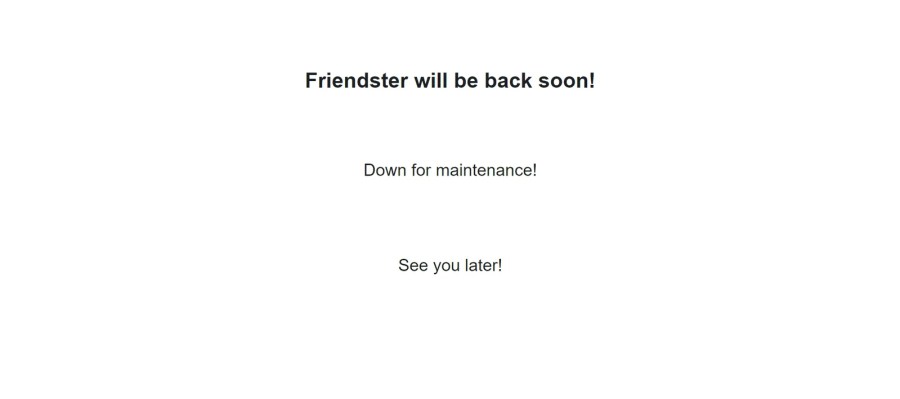We had our suspicions, and they are proven true.

Yesterday, we published an article regarding the so-called return of Friendster. The domain name Friendster.click already had our BS detectors alarmed. If this was an actual comeback, multiple international and reputable news sources like BBC or CNN would have announced it earlier and there would be an official announcement from the company’s social media accounts including Twitter. In addition, Wikipedia would have edited its article about Friendster since the website was created around November 18th, a week before this so-called “Friendster” came back.
This Facebook post started circulating on November 26th with the caption “Na-miss mo rin ba ang Friendster? Ready ka na ba maging isa sa mga pioneer users ?” (TL: Did you also miss Friendster? Are you ready to become one of its pioneer users?) This post garnered over 1,100 comments and 8,800 shares, in addition to 5,600 reactions. It immensely blew up and even some of our friends got excited. As of November 28th, 2022, 12:49am, the post is still active.
The website has been confirmed to be just a WordPress blog disguised to look like a social media platform. In addition, the website, when it was online, lacked an “About Us” page and its privacy policy is very basic. Due to the influx of users registering (mostly Filipinos), the website loaded so slowly. PhilStar Life, a reputable news source, also created a convincing article and visual. However, when we read the actual post, they too were also asking users to be cautious as they are dubious about the legitimacy of “Friendster”.
The second major red flag is the link. As mentioned earlier, a legitimate website would have a .com link but here, .click is used as the top-level domain instead. Also, there’s no HTTP certification with the website.

Going back to the Facebook page that posted the bogus visual, we checked up on it and sure enough, it was a troll account. This is also a major red flag. The page has no website, has no contact info, and apparently, is “female” which we honestly found funny.

The page was created back in October 3rd, with the name “Bacolod for BBM”. Without going thoroughly political, the page posts fake news promoting the elections held in the Philippines last May. As of June 25th, its new name is “Stunner”, with the bio “Open for partnership with local biz and brands nationwide. Let’s capture your most ideal audience. ?”.
Digging deeper, the website was hosted in Indonesia and is possibly a data-mining site. If you have created an account here, change your passwords IMMEDIATELY to avoid compromising sensitive data. Its domain is handled by an agency called Nobis Technology Group. According to Scamalytics, it poses a “medium risk” for fraud, with a score of 27 points. It was also found that Friendster.click is handled by several other domain holders.
Let’s put down our nostalgia goggles off and think critically. When visiting a suspicious website, read carefully its privacy statement and ensure that it has an “HTTPS” protocol (the “s” meaning “secured”). Find its “About” or “About Us” page too, as this will contain information about the company, and thoroughly check its authenticity through Google and legitimate news websites. Wikipedia articles are also handy as they record the history and announcements of businesses.
Also, look for other first-hand sources, like an official announcement from the returning company’s social media accounts. While yes they are gone, out of business, it doesn’t mean that their properties are gone for good. When looking at a viral post, double-check its authenticity. Facebook is very transparent about how pages run. You also need to double-check the posts, whether they align with their category. In this case, social media and tech news.
Stay safe out there, and as always, use your critical thinking skills before typing all your personal information.

You must be logged in to post a comment.